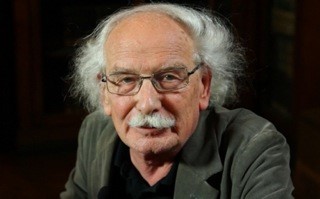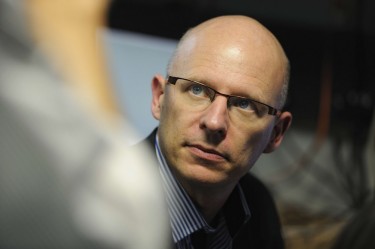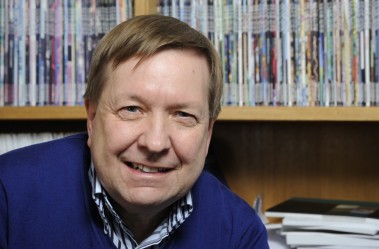格雷特伦德贝克欧洲大脑研究基金会近日宣布获得2014年大脑奖(The Brain Prize)获奖名单。
意大利巴尔马大学(University
of Parma)的Giacomo Rizzolatti、法兰西公学院(Collège de France)的Stanislas Dehaene以及英国剑桥大学的的Trevor W. Robbins因为“他们对读写能力、计算能力、动机行为和社会认知的高级大脑结构的研究,以及他们对认知和行为差异的揭示”而获此殊荣
关于大脑奖
大脑奖(The Brain Prize)由格雷特伦德贝克欧洲大脑研究基金会设立,旨在奖励为欧洲神经科学作出杰出贡献的科学家,得奖者可获得100万欧元奖金,归个人使用。任何人不论国籍或是否退休,只要有可能在未来10年内保持研究状态均能获得提名。
获奖者信息
Biography Giacomo Rizzolatti

Giacomo Rizzolatti, born 28 April 1937 in Ukraine, Professor of Human Physiology, University of Parma. Director of Parma Brain Center for Social and Motor Cognition, Italian Institute of Technology (IIT). Member of the American Academy of Arts and Sciences, Member of Accademia Nazionale dei Lincei, Foreign member of the Académie Francaise des Sciences, Foreign Member National Academy of Sciences, USA.
Honors and Awards
- 2011 Prince de Asturias Prize for Science and Technology, Spain
- 2010 Prix Signoret, Neuropsychology, Fondation IPSEN
- 2009 Laurea Honoris Causa, Katholieke Universiteit Leuven
- 2007 Grawemeyer Prize for Psychology, University of Louiseville, USA
- 2006 Laurea Honoris Causa, University St. Petersburg, Russia
- 2000 Prize “Feltrinelli” for Medicine, Accademia Nazionale dei Lincei
- 1999 Laurea Honoris Causa, University Claude Bernard Lyon, France
- 1989 Member of Academia Europaea
Current research interest
I have at present three main lines of research. The first, carried out with a new type of multielectrode linear probes, concerns the laminar organization of the premotor cortex of the monkey and the characterization of the types of neurons that this area houses. The second line, run with Prof Guy Orban and the surgeons of the Epilepsy Center of the Niguarda Hospital in Milan, aims to study the organization of the premotor and parietal cortex in humans, and to describe the functional properties of human mirror neurons. This study is carried out using a new type of depth electrodes that allow the intracranial recording of single neurons from the parietal and frontal lobe. The third line of research concerns the study of action perception in typically developing children and children with autism. Behavioral tests and multichannel high density EEG are the techniques employed.
Biography Stanislas Dehaene

Stanislas Dehaene born May 12, 1965, France, Professor of Experimental Cognitive Psychology at the Collège de France, Paris; Director of the INSERM-CEA Cognitive Neuroimaging Unit, NeuroSpin, Saclay, France. Member of US Academy of Sciences, British Academy, French Academy of Sciences, Pontifical Academy of Sciences, American Philosophical Society, and Academia Europae.
Honors and awards
- 2013 Roger de Spoelberch Prize
- 2008 Dr. A.H. Heineken Prize for Cognitive Science
- 2003 Louis D. Prize, Institut de France (with D. Le Bihan)
- 2001 Jean-Louis Signoret Prize, IPSEN Foundation
- 1999 James S. McDonnell Centennial Fellowship
Current research interests
I study how the human brain acquires and implements the symbolic processes that underlie language and mathematics. My laboratory clarified the role of two brain regions: the intraparietal sulcus for number sense and the left occipito-temporal cortex for word reading. We investigate how these regions change as a function of education, and how they interconnect to language areas, particularly during the processing of nested expressions, a function that may be unique to humans. We also attempt to clarify the mechanisms of consciousness by studying whether these cognitive processes can unfold with subliminal stimuli, and which brain events characterize conscious processing.
Biography Trevor Robbins

Trevor W. Robbins, born 26 November 1949, United Kingdom, Head of the Department of Psychology, University of Cambridge; Professor of Cognitive Neuroscience and Experimental Psychology, University of Cambridge; Angharad Dodds John Fellow in Mental Health and Neuropsychiatry, Downing College, Cambridge; Director, University of Cambridge Behavioural and Neuroscience Institute (MRC and Wellcome Trust).
Honors and awards
- 2011 Distinguished Scientific Contribution. American Psychological Association
- Commander of the British Empire (CBE) U.K. New Year's Honours List 2012, for services to medical research
- 2005 Fellow of the Royal Society, London
- 2005 IPSEN Fondation Synaptic Plasticity Prize
- 2002 European Behavioural Pharmacology Society, Distinguished Achievement Award
Research InterestMy work focuses on functions of the frontal lobes of the brain and their regulation by the chemical monoamine neurotransmitter systems in humans and other animals. This work is relevant to neuropsychiatric disorders including schizophrenia, depression, drug addiction, obsessive-compulsive disorder (OCD), attention deficit/hyperactivity disorder (ADHD), as well as Parkinson’s and Alzheimer’s diseases. I devise and employs psychological paradigms for investigating cognitive functions including planning, decision-making, learning, attention and self-control, often with brain imaging. I am especially interested in mechanisms underlying possible cognitive enhancing effects of drugs and in understanding the causation and neural basis of drug addiction and impulsive-compulsive behaviour.


 正在提交中...
正在提交中...



